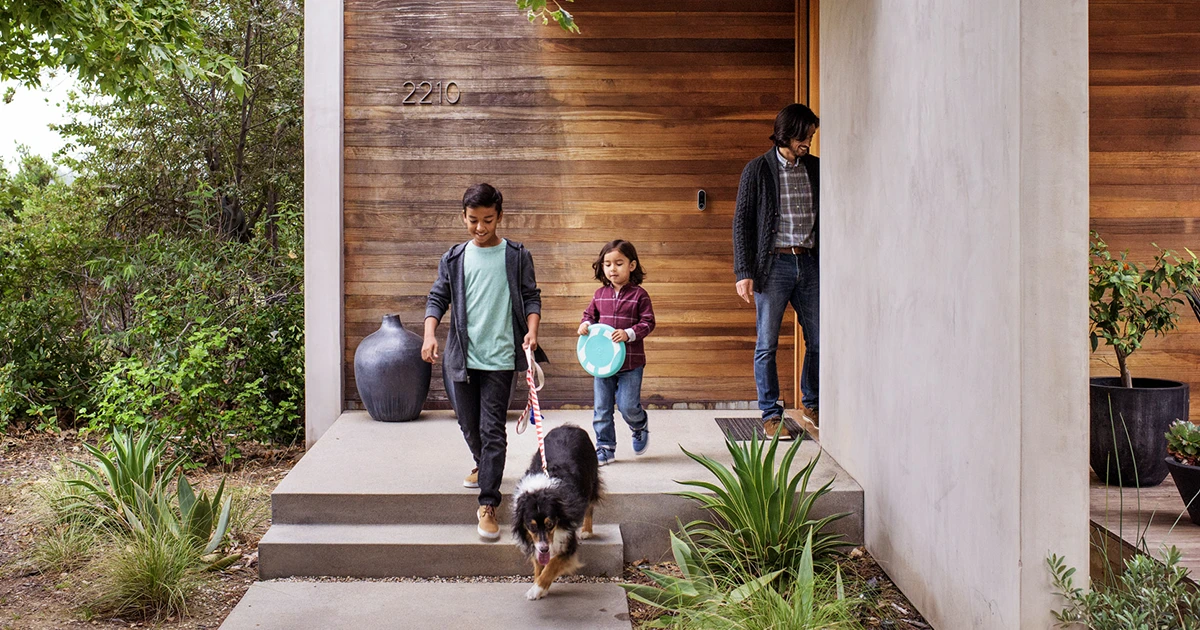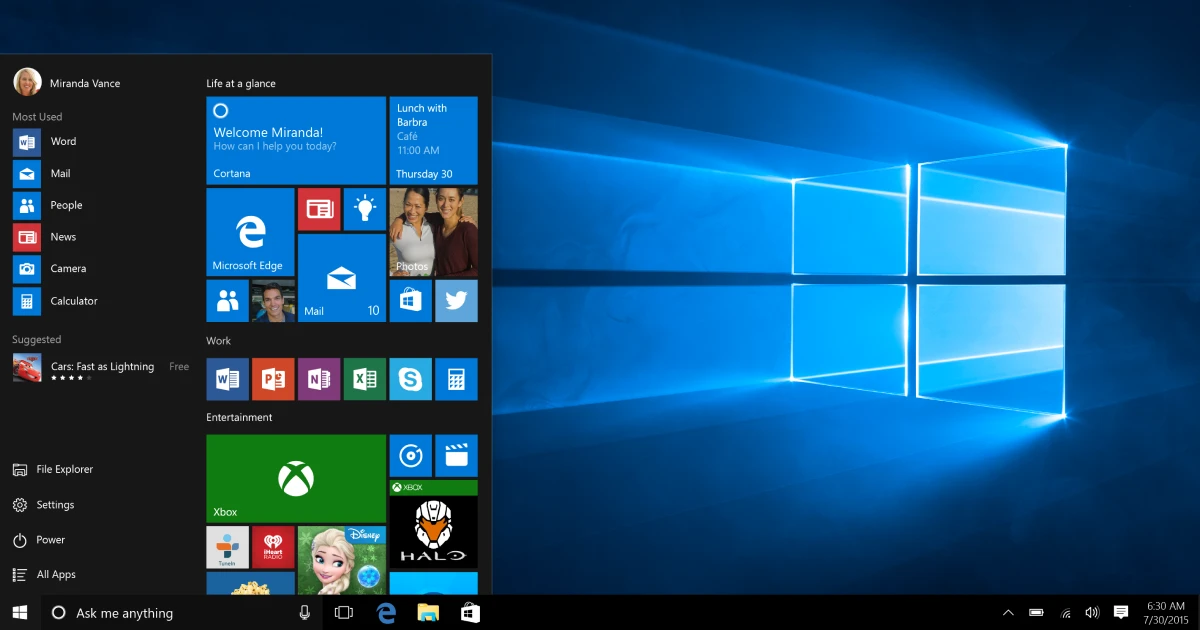Until recently, working from home or outside of the office has traditionally been met with skepticism by many companies. They believed that remote work would lead to a decrease in productivity, a lack of communication within teams, and ultimately, to employees slacking off. And in most cases, this option wasn’t even available – unless you were a salesman who was meeting with multiple clients across the country or even the world.
However, the concept of working from home it’s not new. It dates back to the late 90s’ when big companies like IBM, American Express, and AT&T started to let people telecommute. Later on, it became popular in the early 2000s as the internet became more and more reliable.
And, with the outbreak of COVID-19 and the consequent lockdowns, suddenly, it became a necessity to work from home. As time went by, the idea of remote working from the comfort of our own couch with our cats jumping in front of the camera – we became comfortable with our new reality.
Now, with more than two years of experience, not only did we realize that working from home is possible, but it can also be successful. So, with the normalization of remote working, and a healthier lifestyle we have been wondering if this shift would be permanent. This begs the question…
Is working from home our future?
It’s clear that initially, this systemic change was a necessary measure in response to the COVID-19 Pandemic and to control the spread of the virus. At that point, remote work was still considered a controversial topic as we scarcely had any means of implementing it and surely wasn’t perceived positively. Especially by small businesses or even startups. For this reason, for many of us, this was an experiment. But it became apparent to all of us that remote working yielded quite good results.
Subscribe to our newsletter
For many organizations, remote work has turned out to be a game-changer.
Although many managers were suspicious and terrified at the beginning, in most cases it surpassed everyone’s expectations of how well people could work together even when physically apart. By using Zoom or Google Meet, it was as if we were in the same office. As a result, this reduced the overhead costs of maintaining a physical office and it increased the productivity of employees who benefited from the flexibility of working from home. Because of this, multiple studies have shown that our employees were working just as effectively as before, if not even more.
But, it's worth bearing in mind that remote work is not a viable option for all occupations. Industries such as healthcare and catering, among others, necessitate physical presence for seamless and efficient operations.
However, by working remotely, companies were also allowed to broaden their hiring pool, as they could find talent from all over the world. With the restriction of location out of the way, as businesses, we can recruit people regardless of where they live. This is not just about attracting new people, but also attracting new perspectives and experiences to the table. And, as a result of capitalism, businesses would lower their costs even more since these employees might be hired at a lower rate or salary than a local in a developing country.
But the advantages of remote work aren’t just at the level of the company, but also as individuals.
As employees, we are also benefiting from the flexibility of working from home. Without the daily commute, we won’t be tired of wasting another hour or even more while going to and from work, nor will we be annoyed by the traffic. Let’s face it – all of these are extremely exhausting and some of us are more energy-drained from commuting than the work itself.
And that’s not all! Now, without the extra hours and with the energy renowned for not physically going to work, we have more time to devote to better balancing our work and personal life. We all know how essential it is to maintain a healthy lifestyle. But remote working also gives us the freedom and the flexibility to schedule appointments or pick up our kids from school much more easily.
Plus, we can’t lie about how good it feels to work from any place and maintain a healthy lifestyle. Whether it is our bed, our favorite local cafe, or even Amsterdam or Tokyo. Going on holiday is so much more accessible now. We might be working during the day in our hotel room, and at night we get to explore the city. As an employer, you might be questioning the productivity of your employees who take this road, as you might be afraid that instead of working, they are out visiting. But in most cases, this is far from reality. In fact, we would still be working but in a better mood.
Just like companies are looking for talent outside of their location spectrum, so do employees. And, according to a recent survey conducted by ZipRecruiter, job seekers are willing to accept lower salaries to work remotely. On average, people reported being willing to take a 14% pay cut in exchange for the flexibility of working from home.
However, working remotely for longer periods can become detrimental to organizational culture and deprive employees of social connection.
As we have seen above, working remotely is highly beneficial and widely preferred over the traditional on-site approach. But nothing can be this good without implying some unforeseen consequences.
For one, there are cases when people working from home for prolonged periods can experience a change in perspective. While staying on the couch all day can be all rainbows and sunshine at the beginning, as time passes an employee can experience a lack of motivation, loneliness, and anxiety. Not to mention that there is no feeling of connection with the company as an entity.
Thinking back at previous jobs can bring back a lot of memories for people. After all small talk over the coffee machine at the office can become a daily routine that can go a long way. But that’s not all - assuming that one’s work colleagues are not “the most horrible people on the planet” which most probably isn’t the case for most of us, socializing and being around them in a face-to-face scenario can make us feel bonded to the workspace.
So for this reason hybrid work scenarios emerged and it seems like they combine benefits from both extremes. Some employers choose to divide a week into both office and from-home work days. Examples like 2 days in the office and 3 days remotely are widely seen nowadays and people that benefit from such options seem to be more satisfied in the long run.
One thing is certain - working fully on-site is not going to be the norm anymore. Not only does it bring higher costs for companies, but it also implies unnecessary efforts for employees. So are we too bold in assuming that the future of work will be a hybrid approach of both working remotely as well as face to face? We’ll take that risk.
Is working from home our future?
It’s clear that initially, this systemic change was a necessary measure in response to the COVID-19 Pandemic and to control the spread of the virus. At that point, remote work was still considered a controversial topic as we scarcely had any means of implementing it and surely wasn’t perceived positively. Especially by small businesses or even startups. For this reason, for many of us, this was an experiment. But it became apparent to all of us that remote working yielded quite good results.
Subscribe to our newsletter
For many organizations, remote work has turned out to be a game-changer.
Although many managers were suspicious and terrified at the beginning, in most cases it surpassed everyone’s expectations of how well people could work together even when physically apart. By using Zoom or Google Meet, it was as if we were in the same office. As a result, this reduced the overhead costs of maintaining a physical office and it increased the productivity of employees who benefited from the flexibility of working from home. Because of this, multiple studies have shown that our employees were working just as effectively as before, if not even more.
But, it's worth bearing in mind that remote work is not a viable option for all occupations. Industries such as healthcare and catering, among others, necessitate physical presence for seamless and efficient operations.
However, by working remotely, companies were also allowed to broaden their hiring pool, as they could find talent from all over the world. With the restriction of location out of the way, as businesses, we can recruit people regardless of where they live. This is not just about attracting new people, but also attracting new perspectives and experiences to the table. And, as a result of capitalism, businesses would lower their costs even more since these employees might be hired at a lower rate or salary than a local in a developing country.
But the advantages of remote work aren’t just at the level of the company, but also as individuals.
As employees, we are also benefiting from the flexibility of working from home. Without the daily commute, we won’t be tired of wasting another hour or even more while going to and from work, nor will we be annoyed by the traffic. Let’s face it – all of these are extremely exhausting and some of us are more energy-drained from commuting than the work itself.
And that’s not all! Now, without the extra hours and with the energy renowned for not physically going to work, we have more time to devote to better balancing our work and personal life. We all know how essential it is to maintain a healthy lifestyle. But remote working also gives us the freedom and the flexibility to schedule appointments or pick up our kids from school much more easily.
Plus, we can’t lie about how good it feels to work from any place and maintain a healthy lifestyle. Whether it is our bed, our favorite local cafe, or even Amsterdam or Tokyo. Going on holiday is so much more accessible now. We might be working during the day in our hotel room, and at night we get to explore the city. As an employer, you might be questioning the productivity of your employees who take this road, as you might be afraid that instead of working, they are out visiting. But in most cases, this is far from reality. In fact, we would still be working but in a better mood.
Just like companies are looking for talent outside of their location spectrum, so do employees. And, according to a recent survey conducted by ZipRecruiter, job seekers are willing to accept lower salaries to work remotely. On average, people reported being willing to take a 14% pay cut in exchange for the flexibility of working from home.
However, working remotely for longer periods can become detrimental to organizational culture and deprive employees of social connection.
As we have seen above, working remotely is highly beneficial and widely preferred over the traditional on-site approach. But nothing can be this good without implying some unforeseen consequences.
For one, there are cases when people working from home for prolonged periods can experience a change in perspective. While staying on the couch all day can be all rainbows and sunshine at the beginning, as time passes an employee can experience a lack of motivation, loneliness, and anxiety. Not to mention that there is no feeling of connection with the company as an entity.
Thinking back at previous jobs can bring back a lot of memories for people. After all small talk over the coffee machine at the office can become a daily routine that can go a long way. But that’s not all - assuming that one’s work colleagues are not “the most horrible people on the planet” which most probably isn’t the case for most of us, socializing and being around them in a face-to-face scenario can make us feel bonded to the workspace.
So for this reason hybrid work scenarios emerged and it seems like they combine benefits from both extremes. Some employers choose to divide a week into both office and from-home work days. Examples like 2 days in the office and 3 days remotely are widely seen nowadays and people that benefit from such options seem to be more satisfied in the long run.
One thing is certain - working fully on-site is not going to be the norm anymore. Not only does it bring higher costs for companies, but it also implies unnecessary efforts for employees. So are we too bold in assuming that the future of work will be a hybrid approach of both working remotely as well as face to face? We’ll take that risk.

















